Tag: responsible tourism
Build Back Better: can sustainable tourism regenerate nature?
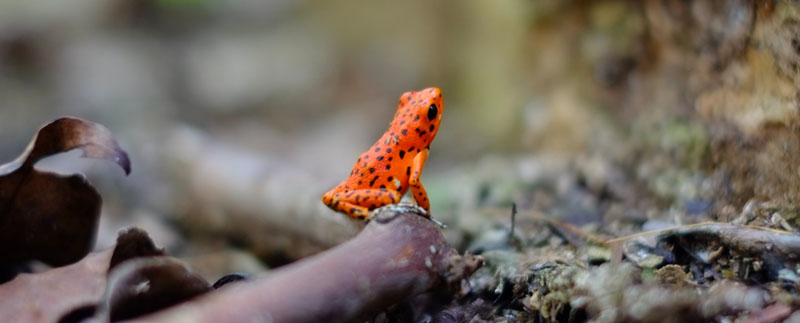
Now that the disastrous year of 2020 is behind us, we can all look forward with new hope. Hope that the road to recovery is short lived, hope that tourism will once again support opportunity and development, but also the hope that the threat of further pandemics will be averted, and the fallout never happens again.
…
We now know that COVID-19 is an animal-borne disease, or zoonotic disease, its passage to humans eased when nature’s natural barrier has been eroded or removed. The World Health Organisation estimates these kinds of diseases account for 75% of all newly detected human pathogens over the last 30 years. Disease, and potential pandemics, which could be averted if biodiversity loss is halted and nature’s health restored.
This is a stark reminder that habitat degradation, animal exploitation, biodiversity loss and climate change are not someone else’s issue but actually affect us all. Facts that certainly help to focus our minds, but ‘not knowing what to do’, or ‘how to do it’, often prevents action, and change.
I co-founded ANIMONDIAL, a specialist consultancy, to help travel businesses cut through the complexity and understand the impacts of their actions on animals and nature, and in so doing, to take responsibility, make informed decisions, and minimise detrimental activity. Protecting animals may not be the first topic that springs to mind when developing your sustainable business strategy, but perhaps it should be…
Not only do we share our planet with 1.8 million+ other species, but their welfare and survival are integral to ours. If poorly managed, tourism tends to exploit animals, degrade their natural attributes, cause habitat and biodiversity loss, and result in climate change, human-wildlife conflict, and viral emergence. However, tourism can be a force for good too, influencing the better protection of the natural environment, its biodiversity, and animal welfare, through tourism revenue and operation. The World Economic Forum estimates nature’s economic value generation at US$44 trillion — that’s over half of the world’s total GDP!
It was therefore shocking to learn that large numbers of animal and plant species are in drastic decline, with monitored populations of mammals, birds, amphibians, reptiles, and fish having reportedly declined by on average by 68%, since 1970 (Living Planet Report, 2020). According to the IUCN, one fifth of the world’s animals and plants are now threatened with extinction. There appears to me no greater need, and reason, to halt biodiversity loss and Build Back Better for animals and nature.
“We are the first generation to know we are destroying our planet and the last that can do anything about it.” — Tanya Steele, Chief executive, WWF
So, as we consider how to Build Back Better during tourism’s resurgence — and we must at this opportune time — it is imperative to follow a more considered approach to sustainability planning and application:
- Acknowledge that environmental, social, and economic impacts are related and interconnected. Consider the fact that a problem may be better addressed at its cause, rather than focusing on the consequence.
- Define your commitment, informing your customers, partners and suppliers, and integrate it throughout the business with defined roles and responsibilities for each team.
- Don’t feel you need to shoulder solution development alone, work with others (experts, partners, suppliers and other travel businesses) to overcome industry challenges.
- Always consider the wider implications of your actions on local people, individual animal welfare, and the natural world, before they are negatively affected.
- Join ANIMONDIAL to Build Back Better for Animals and seek to protect both the animals involved in your product offerings and experiences, and the animals whose welfare may be indirectly compromised within the destinations you visit.
» Sign up to ANIMONDIAL’s Build Back Better for Animals and benefit from exclusive offers and discounted services
In 2021, ANIMONDIAL launched a series of webinars and workshops to inform, inspire and empower travel and tourism businesses to Build Back Better for Animals. » Check out what’s on.
Join ANIMONDIAL, together with other travel experts, for a lively panel discussion at the Adventure Travel Networking Conference on 5th February to consider the implications of Building Back Better. » Find out more
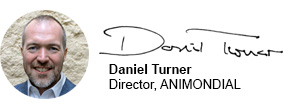
Build Back Better for Animals – Defining your commitment
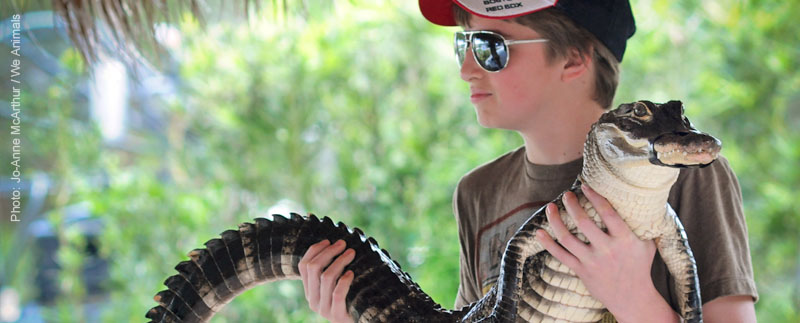
Year 2020 has been a truly devastating year for the travel and tourism sector, and some may say that it is a completely inappropriate time to encourage business to become more responsible and to better protect animals.
…
However, this pandemic has demonstrated the outcome of overexploitation of natural resources for economic gain, and the deadly consequences of ignoring expert warnings. Whereby the exploitation of nature, its wildlife, and its limited resources, results in biodiversity loss, climate change, and greater potential of viral emergence. During tourism sector resurgence, there is perhaps no greater need to review and reduce our negative impact to ensure our future resilience.
This is also the view of Prue Stone, Head of Sustainability at the UK-based adventure tour specialist, Explore. As with most travel businesses, 2020 has been incredibly challenging but, despite restricted working hours, company management has fully supported her decision to work with ANIMONDIAL, and others, to create Explore’s animal protection commitment.
In the hope that Prue’s experiences can inspire and guide other travel businesses to create their own business’ commitment to better protect animals – I have asked Prue to share her thoughts:
“Developing Explore’s animal protection commitment was both a necessity and a luxury. The need for change is very real, and the time for change is now. However, in such a challenging time, and noting that it takes time to create a suitable policy, and possibly money involved, it is also a luxury. A balance needs to be found.”
ANIMONDIAL advocates the importance for each business to create their own animal protection policy within their wider sustainability commitment. Ever since I started work with the Federation of Tour Operators in 2004, creating animal protection guidance for travel businesses (that formed the groundwork for ABTA’s Animal Welfare Guidelines), I have advised businesses to create their own unique commitment as the first important step. Defining their next steps.
“I think the process of creating a policy from scratch, or even reviewing an existing one, can become a point of reflection, or internal audit. We all assume we are “doing the right thing”, but when was the last time we actively checked? By writing down clear guidelines, providing explanations and examples, and communicating them clearly through the business and supply chain, you are ensuring transparency and greater understanding. Ultimately it will allow us to move towards a better future for animals and wildlife and encourage others to do the same.”
Knowing where to start, and what to include in your policy is a challenge. Particularly with so many issues, external pressures, and the multitude of animal species and activities available – whilst also seeking to protect local livelihoods – How do you start drafting such a policy?
“I started by reading other companies’ policies, in a variety of industries, thinking about how each of these made me feel. I wanted to create something that felt authentic to Explore, which encapsulates how we operate and what we believe in. But there are so many issues to consider, and no one policy will ever be perfect. I take comfort from this. I didn’t need to create a policy that could be scribed in stone, I needed to create one that was right for us now, and acknowledge that it will change over time. And indeed, the changes that we need to make also take time.”
Unfortunately, it is never the case of one approach fits all, and your animal protection commitment should reflect your companies’ brand values and operations, but are there key principles to include that you would recommend to other travel businesses?
“The most important components of any policy are commitment and support, more so than the finer detail. Commitment from the person or team writing the policy, those that make the operational changes as a result, those communicating the policy and those ultimately adhering to the guidelines on the ground. There also has to be support from the top level of management, to allow for the time this process can take and how it will filter through the business’ operations.”
Tour operators are regularly under pressure by well-intentioned activists to remove certain practices with animals or modify operations. How do you manage these pressures around your commercial obligations, or have you just removed the ‘unacceptable’ activities all together?
“It is important to identify any areas of concern or activities which are known to harm animals and to act quickly in the first instance. However I don’t believe removing all activity is the answer to sustainable industry-wide change and a knee-jerk response may also cause greater detriment. Change comes from working together, learning from one another; across cultures, countries, industries. At Explore we know, we alone will not have the impact that is needed to protect all animals, but if we reach out to our peers, our suppliers and our customers and together we all move in the right direction – then we can start to see the changes that are so desperately needed.”
Consulting experts can help improve understanding and navigate the complexities of the topic, as well as help to predict the likely outcomes if certain activities are removed from product offerings. Explore acquired the support of NGOs Four Paws and the Born Free Foundation, as well as the expertise of ANIMONDIAL. How did that work out for you, and would you advise other businesses to work with experts when creating their animal protection commitment?
“The breadth of advice, the different perspectives, and the challenge this all presented was as important as the resulting policy. One size doesn’t fit all, and each partner added something unique. Four Paws, for example, highlighted the need to weave the community element into our policy, whilst ANIMONDIAL offers a board spectrum of knowledge and are specialists within the travel industry. It was the combination of ideals of “perfect” animal protection with the reality of human nature, our own ethos at Explore, and what we want for our holidays and customers resulted that ultimately defined our commitment.”
» Find out more about Explore’s Animal Protection Commitment
ANIMONDIAL also provides additional guidance to help travel businesses mitigate risk, minimise negative impact on nature and biodiversity, reduce the potential for disease transference, procure appropriate animal-based product and Build Back Better for Animals.
The ANIMONDIAL team wishes our blog readers a Merry Christmas and a New Year full of hope and resurgence.


Everyone needs nature, but nature needs us too
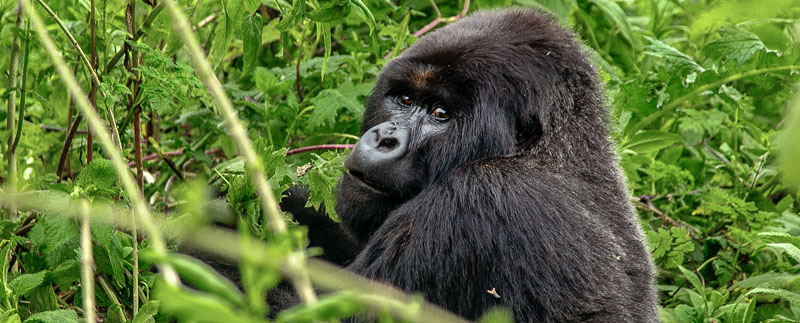
Perhaps like me you have spent this month hellbent on listening to, and consuming all that WTM Virtual had to offer in the way of reassurances, advice, and inspiration for future travel and tourism?
…
Unusually for WTM to have the time to listen to the presentations, as well as to take part, has been hugely welcomed. A rare opportunity to hear the sentiments of others, to learn, to connect, and importantly, to think.
“Tourism can be a force for good”, certainly resonates, as well as the urgent call by Ministers “to create a safer, greener and smarter travel and tourism”. I certainly support such sentiments, particular in relation to animal protection and biodiversity regeneration, but whilst an important call to action, there remains difficulty for business to decipher viable actions from such a vision. This is a recurring challenge for travel businesses that want better to protect animals and the natural environment – and why the ANIMONDIAL consultancy was established.
The 2020 Living Planet Index (LPI) presented a stark picture:
- Between 1970 and 2016, there has been an average 68% decline in monitored populations of mammals, birds, amphibians, reptiles, and fish.
- One fifth of the world’s animals and plants – 32,000 species – are threatened with extinction.
- The planet’s biodiversity is in rapid decline, threatening ecosystem viability.
- This threatens our ability to access food and fresh water, medicines and materials, and our capability to combat Climate Change and future viral emergence.
Basically, since 1970, our Ecological Footprint has far exceeded Earth’s rate of regeneration.
There is really no time to waste, we need to act #ForNature.
Encouragingly, I have seen a shift in people’s sense of urgency, and support for action to better protect nature, but there is also a sense of disconnect too that must be addressed.
Perhaps it is so huge an issue that many people feel that action is best left to governments, or it’s the responsibility of big business, or that ending the Covid-19 pandemic has greater importance. These mindsets were considered in the ‘Tourism and Biodiversity, Friend or Foe’ discussion (available at WTM Virtual), which acknowledged the role of business to engage and invest in nature.
The discussion between responsible tourism professionals and conservationists also recognised that Covid-19, biodiversity-loss and the Climate Crisis are inter-related. Failure to protect and regenerate nature will ultimately increase the likelihood of greater environmental challenges, which includes further pandemics. Humanity’s wellbeing, prosperity and survival is therefore dependent on healthy, functioning ecosystems.
Nature is valued and enjoyed by everyone, we must do what we can to protect it.
As tourism businesses, we already know the importance of nature and what it uniquely brings to many destinations across the world. We know travellers are increasingly wanting to include nature in their holidays and ensure measures are taken to minimise negative impact. Tourism can also generate value in nature, influence the protection of key species (such as the Bengal tiger or mountain gorilla) and with tourism revenues, encourage local and national governments to better protect wild spaces and ecosystems.
Tourism, and the thousands of SMEs that underpin the industry, could therefore play a significant role in leading the charge on nature protection and regeneration by:
- Offering greater nature-based tourism product;
- Investing in local communities;
- Working with your suppliers to deliver sustainable activities and solutions;
- Supporting genuine community-based conservation;
- Ensuring only sustainable and responsible activities with animals;
These are obvious and easy steps in the right direction. Although we could do more.
Defining what to do, and how to make a meaningful difference is, however, a complex task. This was a reflection as I completed ANIMONDIAL’s submission to the Business for Nature consultation on the Post-2020 Global Biodiversity Framework. ANIMONDIAL has joined over 600 businesses to urge the world’s governments to set ambitious goals, targets, and policy directions in the lead-up to COP15 on the Convention of Biological Diversity (May 2021). Mobilising multi-sectorial businesses to influence governments to better protect biodiversity is certainly commendable, but it also occurred to me that businesses, particularly in tourism, could further step-up and play a key role. Particularly if those ambiguous visions were translated into relatable and viable actions to optimise output. Whereby overall recommendations to review, reduce and protect are specifically defined for airlines, accommodation-providers and tour operators, for instance. Whilst the SDGs provide important guidance, I would recommend the recruitment of sector and sub-sector champions to help the different businesses optimise on their output.
What is clear is that all businesses, and functions within, irrespective of the sector, must:
- Review their current activities against the SDGs and performance criteria;
- Measure and minimise negative impact;
- Act to better protect and restore nature and its biodiversity.
Check out ANIMONDIAL’s Build Back Better for Animals, supporting the tourism sector.
The other consideration to ponder is should there be ‘a stick’ to encourage those businesses that choose to ignore the urgency, or worse still, proliferate its demise? Justin Francis, WTM panellist and long-term pioneer of responsible tourism, certainly thinks so, he advocates a legal requirement for businesses to ensure biodiversity net gain and penalties for those that do not.
Ultimately everyone needs nature, but nature needs us too.
» Find out more about ANIMONDIAL’s Build Back Better for Animals initiative
» Sign up to ANIMONDIAL’s newsletter for the latest on animal protection news

Join the Sustainability Revolution!
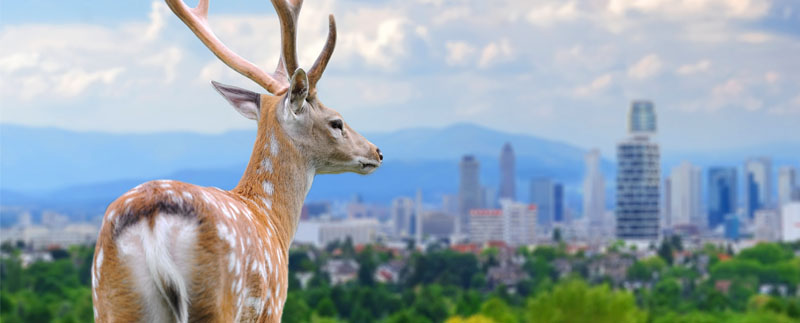
“In the midst of every crisis, lies great opportunity.” – Albert Einstein
…
This quote has sprung to mind several times over the past seven months and is perhaps now more poignant to the Travel and Tourism sector than most. According to the World Trade Tourism Council in 2019, prior to the outbreak of Covid-19, the sector supported 330 million jobs globally, and now as we hit the difficult winter season, we are likely to suffer 197.5 million job losses.
This is indeed a time of unprecedented global crisis, a time we switch to survival mode, to save our jobs, and our industry. However, there is STILL opportunity. Not of increased profit and market growth, but of increased global determination to fight an invisible war and build back with a greater respect for nature.
Nature is indeed ‘everyone’s business’. According to the Business for Nature Initiative, over half of the world’s GDP is reliant upon it, and through unsustainable supply chains, we are drawing away more than can be replenished.
At no time in our history has consumer priority towards safety and ethical standards been higher. People are putting their trust in businesses to make things better, and it is suggested that global brands have more influence over public conscious than our political leaders. Through Business for Nature, corporations are calling on governments to adopt policies to reverse nature loss in this decade. This is a journey I am proud to be a part of. This month ANIMONDIAL was honoured to reach the finals of the Lloyds Bank National Business Award for Social Impact for our work to galvanise the amazing work of NGOs and travel businesses through the crisis.
At this time of increased global unity, could we be facing a new revolution? – The Sustainability Revolution. Never have we seen such focus on ethical rights and responsibilities – the rise of veganism and ethical consumerism, the growth of importance of the Global Sustainable Development Goals… and then in walks Covid-19 to knock us all sideways! We need to better protect nature for our own survival. In this blog, I am choosing to focus on the biggest issue of this generation: the survival of Planet Earth, and the role of the travel and tourism sector to lead the way for the Sustainability Revolution…
First of all, let’s look at the problem…
In economic terms, nature is believed to have an estimated value generation of 44 trillion US dollars (equal to over half of the world’s total GDP!) However, humanity’s negative impact on the planet is not only contributing to the Climate Change Crisis but also increasing the occurrence of animal-to-human (zoonotic) infectious disease such as Covid-19. In fact, over 60% of all known diseases discovered in the last 50 years originate from animals and spread to us when the protective barrier of nature has been jeopardised.
But why should all this matter to us, the travel sector?
- The lack of tourists visiting national parks may well have stemmed the tide of negative impact caused by ‘over-tourism’, but the lack of revenue has resulted in less money generation for conservation efforts.
- With wildlife tourism supporting over 30million jobs, lockdown puts a huge strain on local communities.
- With park staff and anti-poaching patrols losing employment, threatened wildlife, such as the highly endangered pangolin or black rhino, are left increasingly vulnerable to further persecution.
- Tourism itself, puts an enormous stress on the natural environment, and encourages greater contact between nature and people, thus heightening exposure of viral transference.
- And of course, other animal species are at risk of catching the virus and passing it on. Malayan tigers at the Bronx Zoo contracted Covid-19, whilst non-human primates are also highly susceptible. As projects are struggling for funds to continue their conservation work – we are at risk of losing some of our most vulnerable animal species.
Recognising that up to 60% of holiday excursions or experiences, and up to 96% of all tourism activities in Asia, involve animals and nature, we must all take positive actions right now.
The good news, however, is that the Covid-19 pandemic has led to some ground-breaking positive change for animals and nature. As human activity has reduced, nature has taken advantage! There have been encouraging reports of re-wilding of urban areas. We have seen wildlife – from coyotes, spotted at the Golden Gate Bridge – to wild horses grazing in downtown Washington DC. In Asia, China is closing live animal markets and announcing a ban on wildlife consumption. And one of Southeast Asia’s most iconic tourist destinations, Siem Reap has taken major strides to protect dogs and cats by banning their trade and consumption.
Taking all of this into account, what steps can we take at this challenging time to aid our recovery and rebuild the travel and tourism sector for the better protection of the planet?
Step 1: Look inwardly
Whilst operations are grounded, this is a rare opportunity to review them – to return more effective and make the protection of animals and nature an integral component of our tourism agenda. Here are some ideas:
- Adopt new animal and nature SDG commitments for your business and ensure these are ingrained into all your business practises and operations.
- Use this opportunity to audit your tourism experiences that involve animals or nature to identify and mitigate risk of zoonotic disease transfer and negative local impact.
- Encourage activity-suppliers to adopt their own animal protection commitments through selling only responsible and sustainable experiences, and supporting suppliers to improve standards, avoiding loss of local livelihoods.
- Educate customers about animal and nature protection. Use this time to create new customer guidelines and educational materials to engage their interest and report any questionable activities.
Step 2: Collaborate!
‘Nature is everyone’s business’! Changing our relationship with nature is too great a task to do on our own. Working together we can make big impact for the better protection of animals and nature in tourism.
- Sign up to the World Trade Tourism Council Declaration on Illegal Wildlife Trade and the International Wildlife Trade Zero Tolerance Policy to to support the protection of endangered species.
- Join the World Economic Forum’s Business for Nature initiative, engaging governments to reverse nature loss by 2030.
- Support global tourism solutions: Work together to establish and invest in new solutions to some of the biggest, long standing issues for animals and nature in tourism.
- Work with NGOs to deliver meaningful change: This can be as simple as signing a pledge, donating skills or funds to help them deliver their work or including projects within holiday portfolios.
Step 3: Shout about it!
For the marketeers amongst us: do not let all this good work go unnoticed! Speak to colleagues and ask them to tell you what actions your company is taking to help save the planet and then shout about them! Tell amazing stories and win over the hearts and minds of customers by building your brand as one that cares for the planet! And importantly, use your influence to inspire others to follow your lead.
When lockdowns ease, we have a choice of returning to unsustainable ‘business as usual’, or to take greater responsibility moving forward. So, perhaps now is our chance to take stock, hit reset and set new intentions towards a better future. Join the new revolution and leave your legacy to save nature and save ourselves!
For all travel businesses keen to know more about how to Build Back Better for Animals,
sign up to ANIMONDIAL’s free monthly newsletter.

The Adventure Travel Guide Standard: Facilitating Responsible Travel
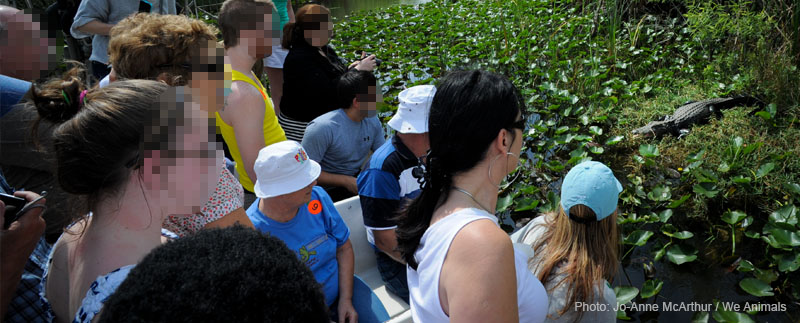
This spring I was asked to help with the 2nd Edition of The Adventure Travel Guide Standard (ATGS): a comprehensive, voluntary guide to support tour operators, destination managers and guides, evaluate and improve travel guide quality and performance. The ATGS is due to be published in October 2020; a ‘must have’ for travel businesses seeking to Build Back Better.
…
Anyone who has travelled off the beaten track, enjoys exploring wild places, or prefers a more immersive travel experience may have had the pleasure of being accompanied by a tour guide. Not only do they provide ‘the face’ of the tour operator and keep us safe, but they can also provide a gateway to an immersive, and quite possibly, a transformational experience. Whereby a holiday, or tour, becomes educational and inspirational, as well as enjoyable.
Certainly, from my experience, the guide is an integral contributor, but I have also found that the opportunity to educate, and encourage responsible practices by guests is often lost. Particularly when their desire to interact with animals can place people at risk, jeopardise the welfare of animals, and taint the values of the tour operator.
It was therefore a welcome opportunity to contribute to the ATGS, ensure its alignment with industry animal protection guidelines, and incorporate relevant guidance to encourage responsible animal tourism.
It was also a pleasure to meet Myles Farnbank, Head of Guides and Training at Wilderness Scotland. Myles is an experienced wilderness guide with many years of sea kayaking, canoeing, sailing and mountaineering in some of the worlds wildest places. He is also a guide trainer and consultant. I have asked Myles to provide a Guest Blog for ANIMONDIAL. He considers the role of the tour guide, the importance of an international guiding standard, and the future for tour guiding.
Adventure travel has grown rapidly in recent decades. It has led to an increase in demand for professional adventure travel guides and, in turn, the need for accessible training and clear universal adventure travel guide qualifications and performance standards. Wilderness Scotland aspire to offer clients world class adventure travel experiences. Put another way, we aspire that our experiences are potentially transformational. We can’t guarantee this, as what is transformational for one person may not be for another.
However, we can aim to increase the potential for transformational experience. To do this well requires careful thought, planning and skill on the part of the guide and of course appropriate training that supports these aspirations.
Adventure travel guides are central to the delivery of professional, responsible and memorable adventure travel experiences. They manage safety and risk and ensure the overall quality of the participant’s experience while safeguarding the adventure travel company’s and the destination’s reputation. Moreover, adventure travel guides have a critical role to play in delivering and educating about sustainability with a focus on climate emergency, biodiversity preservation, and the social impacts of global tourism.
For a tour operator, when considering the inclusion of a guide, must consider the need for, and evaluate their ability to:
- Provide safe and challenging experiences
- Provide the highest level of customer service & hospitality
- Represent the company ethos & values
- Be advocates for the local communities, wildlife and landscapes
- Be destination and activity ‘experts’
- Be skilled in group dynamics, communications, leadership and marketing…
- Be flexible, fun, engaging and spontaneous
Being a guide involves a large and varied skill set.
“To be a guide you’ve got to be an expert in lots of different things: wildlife, culture, history, politics, you name it. You have to be a diplomat, a nanny, a psychiatrist, a paramedic, a cheerleader, you’ve got to be all sorts of things. You’ve got to be super-human.”
The range and availability of training for adventure travel guides varies greatly depending on where you are in the world. Some countries have well established training, qualifications and protocols in some cases tied into legal frameworks. In other countries there is literally no training available other than what a business or guide may have created themselves.
In an effort to bring together one integrated Adventure Travel Guide Standard (ATGS), in 2015 the Adventure Travel Trade Association (ATTA) convened a working group of adventure travel professionals from 16 countries, including guides, business owners and tour operators. The ATGS is to be revised every 5 years, first by the working group and then through a public comment period. The 2nd edition has been revised between August 2019 and September 2020. It is to be released to the public in October 2020.
The ATGS is a framework businesses and guides can sign up to and use as the basis for their in-house guide training, as well as informing the development of formal qualifications. We at Wilderness Scotland use the ATGS in developing our guide training offer. Our award winning 12 day Wilderness Guide Training Programme, the first of its kind in the UK, used the ATGS as a framework.
The ATGS is based around five core competencies which have been identified as essential for adventure travel guides regardless of geography or activities:
- Sustainability
- Technical Skills
- Safety and Risk Management
- Customer Service and Group Management
- Natural and Cultural History Interpretation
I have been involved in the working group for both editions. In this latest review I led a team focussing on the Sustainability competency. Daniel at ANIMONDIAL has been a crucial help reviewing the content around animal welfare in tourism. Our relationship with animals has been brought into even more sharp focus with the COVID-19 pandemic.
The pandemic has had a huge impact on tourism globally with many businesses and guides fighting for commercial survival. However, tourism is slowly recovering and developing training and protocols around the ‘new normal’. The need for well trained and experienced guides providing both transformational, sustainable and responsible experiences is more important than ever.
The 2nd Edition of The Adventure Travel Guide Standard (ATGS) will be published in October 2020 and accessible through ANIMONDIAL’s October newsletter. It will provide the means for tour operators to evaluate the quality and performance of their guides, encourage tour guides around the world to advocate and apply sustainable and responsible practices, and support the travel and tourism sector Build Back Better for animals, people and nature.
» Find out more about “Build Back Better for Animals”
» Sign up to ANIMONDIAL’s FREE newsletter to stay connected with the latest in responsible animal tourism

Time to Build Back Better for Animals

…
ANIMONDIAL’s new initiative to guide and advise the travel and tourism sector to ACT #ForNature.
…
There is no better time, or need, to work together to build a fairer and more resilient society that is kinder to animals and the planet; through clear and achievable objectives and actions.
As the travel and tourism sector focuses on its recovery in what is still a highly challenging time, the UNWTO has called on the industry to “Build Back Better”, and deliver a fairer, more sustainable, and responsible future. Scientists to business leaders have urged industry-drivers and policymakers to ACT #ForNature. Whilst animal protection NGOs advocate an end to wildlife consumption, captive animal exploitation, and intensive food production.
These are all well-intentioned objectives, but my fear is that whilst businesses may support a more sustainable approach, few will enact these recommendations without clearly defined, quantifiable outputs.
Keen to help the travel and tourism sector “Build Back Better”, ANIMONDIAL, the specialist consultancy advocating responsible animal tourism, aims to help businesses Build Back Better for Animals.
Combining its expertise in animal welfare science, sustainable tourism development and social impact, ANIMONDIAL is offering a one-stop-shop of capacity-building and enhancing services to help businesses:
1. Maximise their positive impact
A healthy natural environment is intrinsically linked to the health of natural ecosystems, animals, and people.
If managed well, tourism can influence the better protection of nature and its biodiversity, valuing and investing in nature conservation and ecosystem services, creating jobs, and supporting local livelihoods. However, if poorly managed, tourism tends to exploit nature, its wildlife, and its limited resources, resulting in biodiversity loss, Climate Change, and greater human-wildlife challenges.
As explained in a previous ANIMONDIAL blog, a healthy natural environment is intrinsically linked to the health of natural ecosystems, people, and other animals, as well as vital for tourism productivity.
ANIMONDIAL’s ‘Animal-Friendly HealthCheck’ includes a review of existing animal-based activities, supplier auditing capacity, and advice on product selection and outward facing communications. This provides travel businesses all that is required to better protect animals and the natural environment.
2. Build resilience against public health risk
An incredible 70% of all human diseases discovered in the last 50 years originate from animals.
The World is now conscious to the fact that Covid-19, is a zoonotic disease, of animal origin, that had developed by a coronavirus jumping from animals to humans. However, whilst minimising close contact between people and animals, is an obvious solution, it is not a viable solution, considering animals are a vital resource for our enjoyment, comfort, livelihood, food, health, and survival.
In tourism, interaction with animals and nature is increasingly popular, with up to 60% of holiday activities involving animals (ANIMONDIAL) and 96% of travellers to the Asia Pacific undertaking a wildlife tour (UNWTO 2019); not least the 9 million livelihoods dependent on wildlife tourism.
ANIMONDIAL will help you establish safeguards in your operation and supply chain that will protect both people and animals from zoonotic disease, whilst an expert review of currently practices will identify and mitigate any high-risk activity.
3. Combat illegal wildlife trade
Sustainability can no longer be regarded as an ‘aim to have’, but an integral component of all that we do.
Ending the illegal wildlife trade is essential to protecting global biodiversity and controlling the emergence and spread of zoonotic diseases. Generated and proliferated by huge profits and minimal risk, the unsustainable trade threatens the survival of thousands of ‘endangered’ animal and plant species that are integral to the good health of the natural environment.
Travel businesses should work with their suppliers to ensure they do not sell or promote the sale, or transport of unsustainable wildlife or their products, and ask their customers not to pick up, collect or buy live, or parts of animals or plants.
4. Invest-in-Nature
As a biologist, it is often difficult to review some animal experiences objectively. Particularly when poor practice or negative impact is identified.
However, at a time when travel businesses are under greater scrutiny over the animal activities they sell, it is vital that any such decision is based on accurate and complete animal welfare assessment. This will help to identify any shortfalls against requirement and evidence to substantiate the need for improvements. ANIMONDIAL advocates this approach over the proverbial ‘stop sale’ (when a tour operator no longer sells an attraction), instead opting for constructive engagement, encouraging attraction-providers to make the required improvements. Stopping the sale of an attraction, relinquishes any influence over their activities. So, whilst tourism boycotts may well raise awareness about an issue, from experience they usually do little to address the concerns and can even make matters worse.
ANIMONDIAL offers travel businesses the chance to improve the protection of animals in tourism through working with attraction suppliers and non-profits, supporting carefully selected meaningful courses, and by providing their customers with guaranteed animal-friendly experiences.
5. Build back trust in travel
There is a distinct need for the travel and tourism sector to do more to minimise its impact on animals and the natural world to win back public trust.
Media has reported low public trust in travel, exacerbated by the covid-19 crisis. Animal protection NGOs continually criticised their perceived exploitation of animals in tourism, whilst the industry’s contribution to Climate Change is well documented.
ANIMONDIAL is keen to ensure those tour operators and travel agents, and animal-attraction suppliers, that actively seek to minimise negative impact, are duly recognised and rewarded.
ANIMONDIAL wholeheartedly supports the well-intentioned calls for decisive action by the travel and tourism sector to become more sustainable, resilient, and responsible. However, recognising that it may not be possible for the majority to achieve this on their own, ANIMONDIAL is offering its extensive knowledge and experience in animal welfare and nature protection to build a fairer and more resilient society that is kinder to animals and the planet.
Contact us to find out more about “Build Back Better for Animals”, and why not sign up to our free monthly e-newsletter!

Save nature; save ourselves
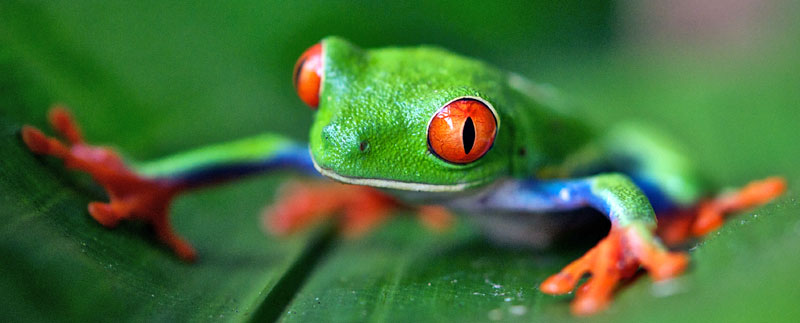
…
Last week I set about drafting the monthly blog for ANIMONDIAL with a focus on “Endangered Species Day” (15 May), to acknowledge its 15th Year Anniversary, but it wasn’t working for me. As I pondered how to bring together so many interconnecting streams of thought, I soon became embroiled in a complexity of message – as opposed to practical application. The protection of threatened species, ecosystems, and global biodiversity sounds good on paper, but advice and guidance to help the spectrum of different businesses to fulfil such broad objectives is often lacking.
In the travel and tourism sector, various policy incentives exist, but few include supportive guidance and viable actions that would be applicable to small to medium-sized businesses. I hope that this blog will go some way in helping travel businesses play their part.
On “Endangered Species Day”, we are reminded of the importance of protecting species, particularly those classified as ‘endangered’. These are species whose population has declined between 50 and 70% with the decline measured over 10 years or three generations of the species, whichever is longer. According to the International Union for Conservation of Nature (IUCN), a global authority that determines species’ conservation status, there are more than 31,000 species threatened with extinction1. That’s almost a third of all assessed animal and plant species on Earth! Moreover, with each species having relevance within a wider fabric of interconnecting relationships (commonly referred to as ‘Nature’), a loss of a species could well result in a greater loss of biodiversity. Since the inauguration of “Endangered Species Day” (2006), the number of threatened species has doubled!
Biodiversity loss is primarily a result of two factors: the loss of natural habitat and a loss in genetic variance. Both occur naturally, but it is the relentless intensity of human activity that continues to have the greatest impact. The removal of vast areas of native habitat for industry, housing and agricultural development, soil degradation from overuse and pollution, to the overhunting and poaching of wildlife, are all considered major drivers in species displacement and extinction.
The World Economic Forum (WEF) ranks biodiversity loss in the top five threats humanity will have to face in the next ten years. In a recently published report2, it acknowledges that “Nature underpins our prosperity and wellbeing by providing economic value and security, supporting human development and equality, and increasing our resilience to climate change.” In economic terms, Nature is believed to have an estimated economic value generation of US$44 trillion (that’s over half of the world’s total GDP). However, despite this, humanity’s negative impact on other species, ecosystems, and global biodiversity is not only contributing to the Climate Change Crisis but, also increasing the occurrence of animal-to-human (zoonotic) infectious disease (e.g. COVID-19)3. This demonstrable connection between the health of animals, natural ecosystems and the health and welfare of humans was a focus of my March 2020 blog.
Humanity appears to be destroying the very resource we should value the most. We must therefore act now to save nature; to save ourselves.
Many people are wondering when life will get back to ‘normal’ after the COVID-19 crisis. Can we not use this opportunity to learn from our mistakes and build something better?
I realise these are already difficult times for the travel and tourism sector but, perhaps there is no better time to take stock and review previous operations – to return more efficient and effective. Importantly, ‘sustainability’ can no longer be regarded as an ‘aim to have’, but an integral component of all that we do. Tourism needs to review its relationship with animals and nature. Specifically, to identify, measure and better manage (or even to minimise) negative impact.
Simply adopting an in-office policy to “recycle, reuse and reduce” should no longer be considered enough to reverse nature’s demise and ensure our future security. Instead, this kind of initiative must be one of many within a multifaceted, strategic approach to optimise output. Involving all departments within your business as well as stakeholders across the supply chain.
Knowing that something needs to be done is the first step towards success, but knowing what to do and how to do it, is often the issue. ANIMONDIAL, the global tourism consultancy specialising in responsible animal tourism, is here to help cut through the complexity to identify tangible actions that are right for your business.
What can I do to better manage my impact on animals and the natural world?
Reduce your company’s negative impact on nature
- Adopt animal welfare and protection principles, advocated by ANIMONDIAL and the ABTA Animal Welfare Guidelines4, and offer only responsible tourism activities with animals and respectful wildlife viewing practices that uphold good welfare standards. Receive a bespoke service from ANIMONDIAL.
- Evaluate all your tourism activities / experiences that involve animals to identify and measure risk, end inappropriate activity, and seek to improve standards in animal welfare.
- Discourage your suppliers from sourcing animals from the wild; unless there is a demonstrable and justifiable conservation need. If in doubt, contact the national CITES Management Authority5.
- De-list tourism activities / experiences that involve the hunting of wild-born or captive-bred animals for the purposes of sport, trophy, or entertainment.
- Request that your suppliers do not commercially trade, breed or exploit their animals (this includes zoos, aquaria, animal sanctuaries, rescue centres and orphanages6).
- Product procurement teams and Destination Management Companies should inform all suppliers to ensure they do not sell or promote the sale of any of these unsustainable wildlife products. Refer to the European Commission’s Wildlife Souvenir’s Guide7 and use tools to identify threatened species7,8.
- Ask your customers not to pick up, collect or buy animals or parts of animals (including corals, sponges, shells, etc.) or plants (including orchids, seeds, seedlings, etc.) from the wild. Use online tools to identify the conservation status of the species involved1,7,8.
- Ask your airline partners not to transport live animals, trophies or products derived from animal or plant species that are listed under CITES Appendix I or classified as ‘Critically Endangered’ or ‘Endangered’ by the IUCN Red List of Threatened Species™.
Invest in protecting and restoring nature
- Audit all of your tourism activities / experiences that involve animals or that take place in Nature to mitigate risk and ensure compliance with your adopted animal welfare and protection principles. ANIMONDIAL partner, Preverisk9, provides endorsed animal protection auditing.
- Adopt a fresh approach to managing associated risk and addressing persistent challenges by investing in solutions as an alternative to the ‘stop sale’ that modify product and tackle poor animal welfare standards. Contact ANIMONDIAL if you are interested in supporting our initiatives to better protect Asian elephants, cetaceans, turtles, and more in tourism.
- Support financially or in-kind projects and organisations that genuinely protect animals and or Nature. Contact ANIMONDIAL to access its list of trusted, community-based animal protection initiatives10.
Collaborate with others to make a difference
- Sign up and contribute to the United for Wildlife Transport Taskforce11; the WTTC BA Declaration on Illegal Wildlife Trade; and the IWT Zero Tolerance Policy12, and work with ROUTES’13 support to implement your commitments.
- Sign up to the World Economic Forum’s Business For Nature initiative, working with governments to reverse nature loss by 2030.
Changing our relationship with nature is too great an issue to be left to the scientists and policymakers. We must all take responsibility, end destructive activity, and strive to return what we have lost. Business (no matter the size) has a crucial role to play, by putting nature at the core of their activity and decision-making, assessing, mitigating, and managing animal and nature-related risk.
ANIMONDIAL is here to help you identify tangible actions that are right for your business.
To help ANIMONDIAL help your business better protect threatened species, ecosystems, and global biodiversity, we want to hear from you! Please complete this 2 minute survey and receive a FREE Animal Protection Health Check. Looking forward to hearing from you.
- IUCN Red List of Threatened Species™ https://www.iucnredlist.org/
- World Economic Forum (2020) Global Risk Report https://www.weforum.org/reports/the-global-risks-report-2020
- World Economic Forum (2020) COVID-19 and nature are linked. So should be the recovery.
https://www.weforum.org/agenda/2020/04/covid-19-nature-deforestation-recovery/ - ABTA Animal Welfare Guidelines 2019 https://www.abta.com
- UNEP-WCMC & CITES Secretariat, providing information on C US Fish and Wildlife Service, CITES permits and certificates https://www.fws.gov/international/pdf/factsheet-cites-permits-and-certificates-2013.pdf
- ANIMONDIAL (2019) Animal sanctuaries: more than just a name
https://animondial.com/animal-sanctuaries-more-than-just-a-name - European Commission, The Wildlife Souvenirs Guide https://ec.europa.eu/environment/cites/info_souvenirs_en.htm
- CITES-listed species https://speciesplus.net/
- ANIMONDIAL (2020) Preverisk https://animondial.com/partners
- ANIMONDIAL (2020) Animal Protection Network https://animondial.com/animal-protection-network
- United for Wildlife Declaration https://www.unitedforwildlife.org/the-buckingham-palace-declaration/
- WTTC (2018) BA Declaration on illegal wildlife trade https://wttc.org/Initiatives/Sustainable-Growth/illegal-wildlife-trade
- The USAID Reducing Opportunities for Unlawful Transport of Endangered Species (ROUTES) Partnership https://routespartnership.org/

The power of collaboration between businesses and charities to change the world
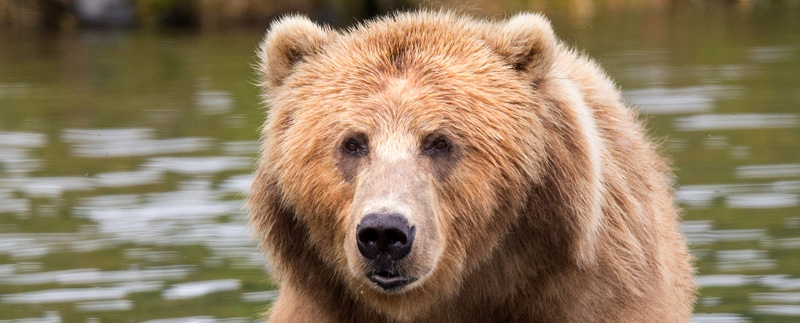
Following on from our last blog on the topic of responsible vs sustainable tourism, and coinciding with the upcoming launch of our very own Animal Protection Network, it seems fitting to start 2020 on the topic of social impact collaboration (or corporate social responsibility as it’s historically been known).
So what is ‘social impact’?
It is undeniable that some of the biggest solutions to global problems require positive collaboration. Each of us, in all our various roles (as citizens, employees, parents, consumers, and community members) have an intrinsic role to play in creating these solutions. Our decisions in life, at home and in business, can create social impact: A significant, positive change that addresses a pressing social challenge.
In the case of ANIMONDIAL, we exist to do just that – to make a significant, lasting change for the better protection of animals in tourism, and the ecosystems and communities that rely upon them.
I remember when I once asked Daniel (co-Director of ANIMONDIAL) what inspired him. He shared an experience during a zoo investigation many years before, when he had come across a bear, alone in a barren cage. He relayed that the bear had nothing – nothing to stimulate him – he was lifeless and despondent. That was until, a small leaf floated through the iron bars, and the bear suddenly came to life, grasped the leaf with his paws and played with it. Repeated pouncing on top of it. He was overjoyed. That was until the wind blew the leaf through the iron bars, out of the cage, and out of reach. It was as if the leaf had never happened. The bear returned to the lifeless state. One simple leaf had rekindled his spirit momentarily. The episode had reaffirmed Daniel’s purpose, to strive to improve animal welfare and spare animals such unnecessary suffering.
I met Daniel whilst working for an international animal protection organisation, where I headed up corporate fundraising, and he led on the animal welfare, political and tourism strategy. It was this chance setting that ignited our shared vision to protect animals in tourism and would then result in the foundations of our bespoke social purpose.
Businesses want to be involved with charities in developing solutions to complex problems and I’ve seen a number of them make valuable commitments to partner in an effort to do good, most as part of our work at ANIMONDIAL: Etihad Airlines, Mind UK, Allianz, Uber, STA Travel, Kuoni, Marie Curie, Make A Wish and Jaguar Land Rover. Here is your business case:
With the rise of socially conscious consumers – Millennials and Gen Z, fast becoming the most dominant consumers in society, more businesses are becoming aware of the need to demonstrate their social impact. But this goes deeper that the promise of post-recession Corporate Social Responsibility (CSR), and aims to tackle the root cause, rather than applying a band-aid. Now a business can truly become the hero and showcase its inspiring commitment.
ANIMONDIAL exists to support travel businesses to become leaders for responsible animal-based tourism, not only demonstrating positive branding and enhanced PR and public engagement, but also by proactively making an impact on the ground.
Simon Sinek, British-American author and motivational speaker stated: ‘People don’t buy what you do, they buy why you do it.’
Recent surveys have proven the value of these words:
…
- 91% of global citizens expect companies to do more than make a profit; they believe companies need to proactively act responsibly and address issues (Better Business Bureau, 2016)
- 71% of people are more likely to buy holidays from companies that care (ComRes Survey 2017)
- 90% of travellers are concerned about animal welfare (Thomas Cook, 2019)
Travel and tourism can reach into the most remote and isolated destinations. Through partnering with trusted NGO projects around the world, you can offer arguably the biggest social impact of any industry on the protection of animals and communities. This support does not just have to be financial; it can be far greater than that! Consider including projects into itineraries. For example, our partners Mahouts Elephant Foundation offer an incredible once-in-a-lifetime experience of ‘glamping’ in the Thai forests, walking with elephants and eating local cuisine around the campfire with indigenous people.
Or support them at a distance through in-kind donations or promotion to customers. Etihad Airways chose creative methods of charitable support including the optional donation of air miles, the sale of the charity’s bracelet onboard, and the promotion of its work in-flight. In return, Etihad benefitted from inspiring content for customers and colleagues, the development of their anti-wildlife trade policy, and the promotion of the company as leaders in the protection of animals and communities.
Or how about considering responsibility through your supply chain? World Cetacean Alliance offers a trusted Responsible Whale and Dolphin Watching Certification Scheme for suppliers of said experiences; The Humane Society runs a Forward Food initiative, which encourages businesses to ‘put more plants on plates’ through sustainable, healthy and compassionate menu choices. Now how about that for an inspiring in-flight meal alternative?
This month, I attended the New York Travel Show, where I was asked to join a panel hosted by the Adventure Travel Trade Association (ATTA) to discuss how adventure travel can become a source for meaningful good. Travel and travel operators have the power to inspire a global movement of conscientious conservation, thus educating, encouraging and empowering travellers to do the right thing. If 60% of ATTA members are outbound operators, taking US citizens to other parts of the world, their members provide the means to inspire travellers to care for global destinations and thus help solve some of the biggest issues – from sustainability, to animal welfare, child protection and community empowerment. In return, their businesses will have eyes and ears on the ground, and become more highly regarded as one that listens to its customers and cares for the planet.
So what steps can you, as a travel business or individual, now take?
- Consider what big issues you would like to focus upon solving.
- Consider what social impact you are able and driven to make to solve these issues.
- Consider a strategic NGO partnership with a perfect project to help you solve this issue and help you make dramatic impact on the ground.
- Contact us to get all the answers through a FREE 30 minute consultation!
Our goal at ANIMONDIAL is to inspire travel industry colleagues to consider what positive impact your company can make on the planet and which NGOs of shared purpose you could partner with to maximise that impact.
After all, it’s “social” impact! So let’s get together, businesses and charities, and work together.

Sustainable vs Responsible Tourism – that is the question?
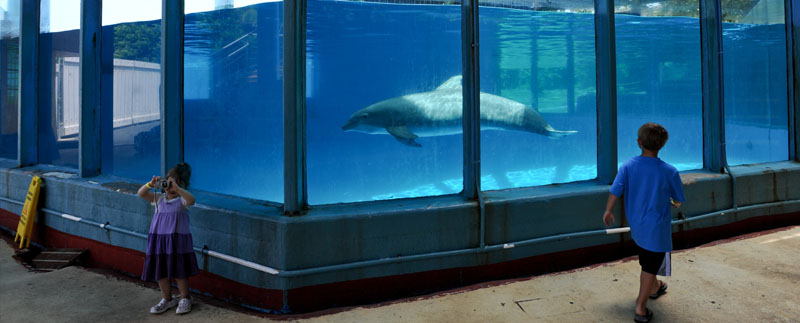
(Photo: Jo-Anne McArthur / We Animals)
As we approach the end of 2019, and look forward to the seasonal festivities, there is no better time to reflect, and consider our social impact. In particular, how our actions are benefiting, or could do more to benefit, the community and the environment on which we depend. In the tourism sector, this is usually referred to as sustainable or responsible tourism. Both terms are becoming more popular and more relevant, but is this just greenwashing, or actually part of a revived ‘green revolution’?
A week ago, I had the pleasure of attending the Global Sustainable Tourism Council (GSTC) annual conference on the island of Terceira in The Azores. The event, hosted by GSTC and The Azorean Government, attracted over 250 people from 42 countries to this remote Atlantic island, to discuss sustainable destination tourism. Fittingly, the occasion was marked by The Azores receiving a destination’s sustainability award. Of course, any destination that fulfils recognised sustainability criteria should be applauded, but is it right to assume that this includes both sustainable AND responsible outputs? Recognising that it is possible to be sustainable, without necessarily being responsible. This is a fact that is often overlooked by an industry that is trying to do the right thing.
Sustainability refers to the ability to maintain an activity at a certain rate or level (i.e. the availability of flights to The Azores), whilst responsibility refers to taking a conscious decision and accepting the consequences of one’s actions (i.e. a heightened carbon footprint). Noting that this was a particular concern of the delegates of the GSTC conference, many of whom had to take a minimum of two flights to travel to Terceira. This sort of dilemma applies to animal-based activities too: for example, whilst it may be considered sustainable to keep dolphins in captivity – recognising that wild dolphins and whales continue to be caught from the wild to sustain the captive population – it is questionable whether is it a responsible act, noting that studies indicate that the welfare of these animals may be compromised.
In my opinion, there should never be a question of one or the other (sustainability vs responsibility), but instead a consideration and a combination of both values. Whereby the assessment of status and performance, decisions taken, or terms used, include both sustainability and responsibility criteria. In order to maximise our benefits and minimise our negative impacts (on a destination), we must therefore a) ensure our activities can be sustained but, b) that these cannot be at the detriment of the resource upon which it relies, and c) that it does not directly, or indirectly cause irreversible damage. The business case is also attractive: minimised negative impacts = more customers = increased customer satisfaction and loyalty = increased customer expenditure and profit (University of Surrey). Establishing both these values into the operations and activities in the travel destination, business, or conference, is therefore the obvious way to go.
There is a great deal of advice and guidance available to facilitate this sustainable and responsible approach. Whether your destination or business is embarking on its first tentative steps of a brand-new journey or needing help to refine an already trodden path, there are a number of resources to guide you on your way. For general advice, there are the GSTC Criteria that ‘serve as the global baseline standards for sustainability in travel and tourism’, with its Destination criteria (GSTC-D) (December 2019) including baseline measures on wildlife interactions and animal welfare in tourism. ANIMONDIAL is pleased to have inputted and advised on this content.
For general guidance on wildlife interactions and animal welfare, ABTA’s Animal Welfare Guidelines is recommended. Today, ABTA has launched the 2nd edition of the Guidelines and ANIMONDIAL is pleased to have contributed, ensuring that the latest evidence has been taken into account (abta.com/animalwelfare).
For bespoke impartial advice and guidance that is aligned with your unique business model and brand identity, ANIMONDIAL provides a variety of services. These include policy development and integration, a procurement health check, training and internal comms guidance. In addition to minimising any negative impact, ANIMONDIAL can also help to maximise the benefits through introductions to our carefully selected NGOs, projects and experiences. These provide travel businesses the opportunity to offer unique experiences that also make a positive difference to animals involved in tourism.
So, this Christmas, and into 2020, consider adopting BOTH sustainability and responsibility criteria and support, financially or in-kind, one of ANIMONDIAL’s trusted NGO partners.
Wishing you an enjoyable Christmas season and a successful 2020!
In 2020, ANIMONDIAL will be relaunching its Animal Protection Network providing a portfolio of carefully selected NGOs, animal-based projects and experiences. Contact us for more information.

ANIMONDIAL: Bringing compassion to animals in tourism
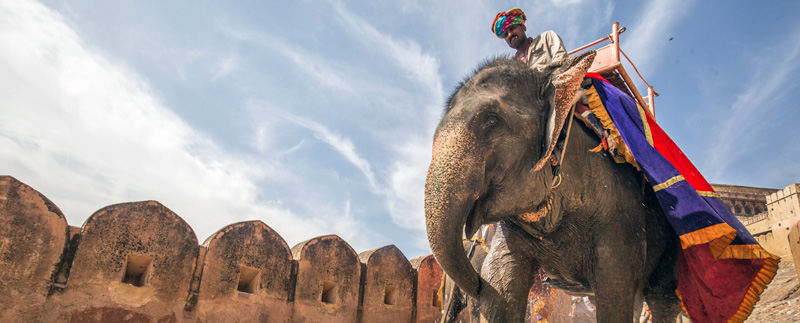 On World Tourism Day (27th September) there is no better time to take stock and consider our actions, the implications of our actions, or the consequences of not taking any action at all.
On World Tourism Day (27th September) there is no better time to take stock and consider our actions, the implications of our actions, or the consequences of not taking any action at all.
Ill-thought through actions, can cause irreparable damage, whereby tourism has negatively impacted on the environment, natural habitats, people and wildlife, but when managed well, tourism can be a force for good.
It is indeed heartening to see many tourism businesses now embracing a responsible and sustainable approach. This is evidenced to deliver cultural, social, economic and environmental benefits and influence meaningful change. In my capacity as an animal welfare in tourism specialist, with over a decade of experience, I have seen how commercial interests have eclipsed animal welfare concerns. But I have also had the pleasure of working with businesses, such as Thomas Cook, DER Touristik, STA Travel, Audley Travel and Collette, that strive to make a difference by placing animal welfare on their priority list. Importantly, however, animal protection should never be regarded as a ‘green’ option, or a sacrifice of profit, on the contrary evidence indicates that protecting animal welfare throughout the supply chain makes business sense, and enhances reputation and profit.
I believe the main obstacle preventing more travel businesses from adopting animal protection measures, is a general lack of understanding of the complex topic, and an overpowering stigma that making such a commitment will subject the business to intense scrutiny and challenge. It certainly does not have to be that way!
I established ANIMONDIAL, the animal welfare in tourism consultancy, to provide the means for travel businesses to better understand animal welfare, and how to better manage animal activity within the supply chain, whilst respecting commercial interests and brand identity. Our services include a comprehensive review of current practices, supportive training, animal welfare auditing services, and impartial, practical guidance to help businesses make informed decisions on the products they sell.
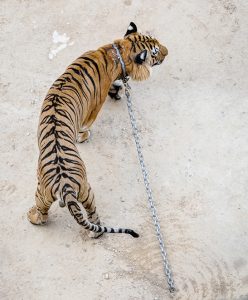
Tiger Temple in Thailand (Photo: Jo-Anne McArthur / We Animals)
With more pressures than ever on tourism businesses ‘to do the right thing’ and ‘end the exploitation of animals’, it is a measured, but strategic approach that is required. Just delisting once popular animal excursions or activities as ‘unacceptable’ practices overnight, is likely to cause greater problems. Such action often leaves the in-destination animal attractions, established to meet the demand of inbound tourism, to pick up the pieces and find a tangible solution. I feel that such an outcome is irresponsible. Firmly believing that international tourism should not turn its back on the attractions that it helped to create, and make profit, but use their influence to enforce change.
On this World Tourism Day, ANIMONDIAL considers the biggest challenges for animals in global tourism and encourages travel businesses not to walk away from the problems, but to instead be part of the solution.
By example, in my first Blog, I focused on the outcomes of the elephant riding boycott; reporting that the well-intentioned campaigning against the activity, had in fact caused more complex animal welfare and public safety concerns. Importantly, supplier delisting has not ended elephant riding, on the contrary it is still widely available, and there are now wider concerns over the promotion of misinformation, exploitation, and obscured activity.
The elephant ‘tourist’ camps were established to accommodate the 2,000 displaced, conditioned elephants from timber extraction activity in Thailand in 1989. By the late 1990s, the concept had been established and these elephant experiences soon become the most popular tourist attraction in Thailand, influencing similar activity elsewhere. Today, there are thought to be over 300 elephant ‘tourist’ camps, 4,700 captive elephants and an equal number of mahouts in just Thailand alone, all reliant on the travel industry. Delisting the product is therefore unlikely to safeguard the welfare of the elephants and the mahouts, and consequently an alternative approach must be found.
ANIMONDIAL positions itself at the forefront of such challenges. In fact, working with stakeholders, we are developing a solution for the captive elephant industry in SE Asia that we believe will improve standards, phased-out bad practice, modify the offering and maintain a viable industry for all to benefit (including the elephants!). Expect an update in my next Blog.
This is just one example of many where we feel we can make a difference and I certainly welcome the collaboration with businesses, NGOs and academics in identifying and delivering viable solutions to such recurring animal welfare problems that continue to challenge the global travel industry.
This November, the British Travel Association, ABTA, is likely to publish its revised Animal Welfare Guidelines. Updating the 1 st Edition, published in 2013. I have had the pleasure of working with ABTA, and many of its members, in the development and delivery of their animal welfare commitment for many years. This comprehensive guidance on animal welfare in tourism is a ‘must have’ resource for all travel businesses. However, just a word of caution and encouragement – please take care when considering your actions and the implication of those actions. Clearly it will take time to not only understand the complexities of animal activity and the dependence on some for communities’ livelihoods, but also that the consequences of not taking any action to try to influence positive change, may well have wider repercussions.
Noting that more than 90% of tourists have said it is important for their holiday company to take animal welfare seriously, and the fact that there is impartial guidance readily available, travel businesses now have the means to demonstrate their achievements beyond the pure acceptance of this principle.
Please do not hesitate to contact us to learn more about how ANIMONDIAL’s services can help your travel business deliver an inspirational animal welfare commitment.
